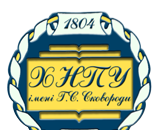Ministry of Education and Science of Ukraine
H.S. Skovoroda Kharkiv National Pedagogical University
Tetiana M. Starostenko
Course Notes on the History of English Language
Kharkiv - 2019
CONTENTS
INTRODUCTION……………………………………………………………………………………
Lecture 1
‘WHERE DOES ENGLISH COME FROM?’ or THE DAWN OF BRITISH HISTORY……………
Lecture 2
THE PHILOLOGICAL CONTEXT OF THE ENGLISH LANGUAGE………………………...........
Lecture 3
THE MIDDLE ENGLISH PERIOD: THE STRUGGLE FOR SURVIVAL…………………………..
Lecture 4
MODERNITY AND THE RISE OF A NATIONAL LANGUAGE…………………………………..
Lecture 5
THE ORIGINS AND HISTORICAL DEVELOPMENT OF ENGLISH GRAMMAR………………
Lecture 6
THE SYNTACTICAL STRUCTURE OF ENGLISH LANGUAGE, ITS DYMAMICS AND THE PROCESS OF GRAMMATICALIZATION……………………………………………………….
Lecture 7
LANGUAGE CONTACTS. THE COLONIAL AND POSTCOLONIAL EXPERIENCE…………..
Seminar № 1
PROTO-GERMANIC PERIOD……………………………………………………………………….
Seminar № 2
OLD ENGLISH PERIOD……………………………………………………………………………..
Seminar № 3
MIDDLE ENGLISH PERIOD………………………………………………………………………..
Seminar № 4
MODERN ENGLISH PERIOD………………………………………………………………………….
Seminar № 5
HISTORICAL MORPHOLOGY………………………………………………………………………
Seminar № 6
HISTORICAL SYNTAX…………………………………………………………………………………
Seminar № 7
VOCABULARY AND TEXT…………………………………………………………………………
TEST YOURSELF………………………………………………………………………………………
APPENDIX……………………………………………………………………………………………
THE LIST OF ABBREVIATIONS………………………………………………………………………
EXAMONATION QUESTIONS………………………………………………………………………..
REFERENCES………………………………………………………………………………………….
INTRODUCTION
A History of the English language is a discipline, retracing the origins, the phonetic system, grammatical structure and vocabulary of the English language at different stages of its development. A History of the English Language aims to equip students with the skills, insights and appropriate theoretical approaches necessary to analyse and describe changes in the structure of the English language from the earliest written records to the present day.
A History of the English language is based on the History of England, investigating the development of the language in connection with the actual conditions in which the English people lived in the several periods of their history. The course has strong ties with theoretical phonetics, theoretical grammar, and lexicology. It shows phonetic, grammatical, and lexical phenomena as they developed, and states the origins of the present day system. The subject covers the history of the English language and the variation between English dialects in the United Kingdom and further afield.
The alterations within the language system are traced within the influence of extralinguistic factors (such as historic events, social fluctuations, wars, conquests, migrations, cultural contacts), and internal causes or intralinguistic reasons, responcible for the changes within the language itself, its phonetics, grammar, etc. The course covers all major historical events, which had an impact on English, starting with ancient Celtic language, Roman, French and until the creation of new forms of English, and includes a part dedicated to the English accents. The discipline will help to widen the students’ outlook on history, geography and language. It teaches cultural awareness and helps to understand sophisticated layers of English grammar, vocabulary and spelling.
The historical development of the language is viewed both synchronically (the study of a language at a given point in time) and diachronically (the study of a language over a period of time).
The basic method is comparative-historical, which enables the researcher to study various phenomena of the language development from the point of view of evolution and in comparison with the phenomena of other languages.
By the end of the course students should be able to:
- demonstrate a thorough understanding of diachronic changes in English from Old English to Present Day English, and the ability to situate those in their socio-political contexts;
- develop the linguistic skills required in close analysis of individual words and other texts;
- demonstrate a critical understanding of different and sometimes conflicting approachesto the study of the history of the English language;
- display the ability to use the primary and secondary sources provided and collected through independent reading as supportive documents in exploring evidence of language change and / or the ideology that has influenced the development of the English language.
Assessment Criteria. By the end of the course students should demonstrate:
- The ability to identify examples of linguistic change in semantics, lexis, phonology, syntax and orthographics.
- An understanding of how these linguistic changes might be related to historical context, particularly in terms of relevant socio-political factors.
- That they can work independently, and critically evaluate the linguistic concepts and methodology covered on the course.
- Викладач: Старостенко Тетяна Миколаївна
